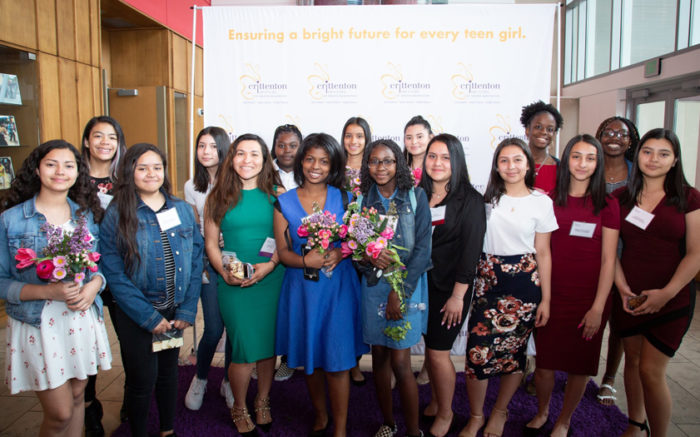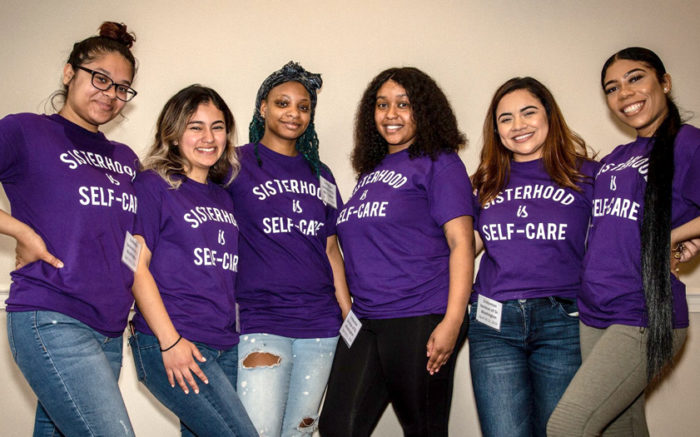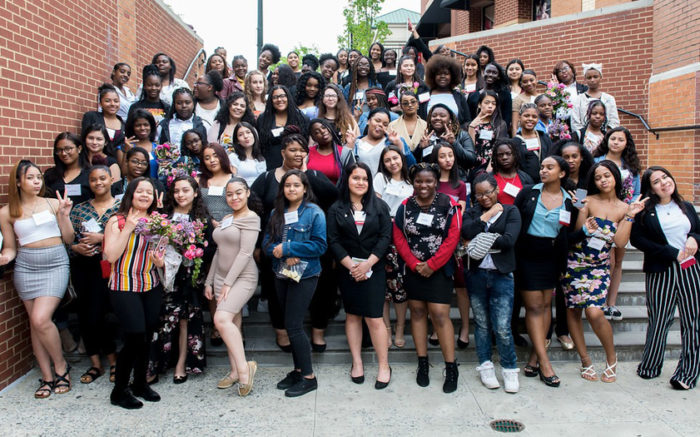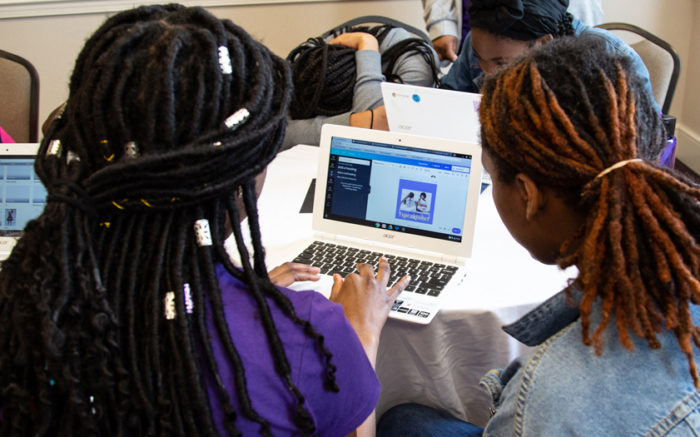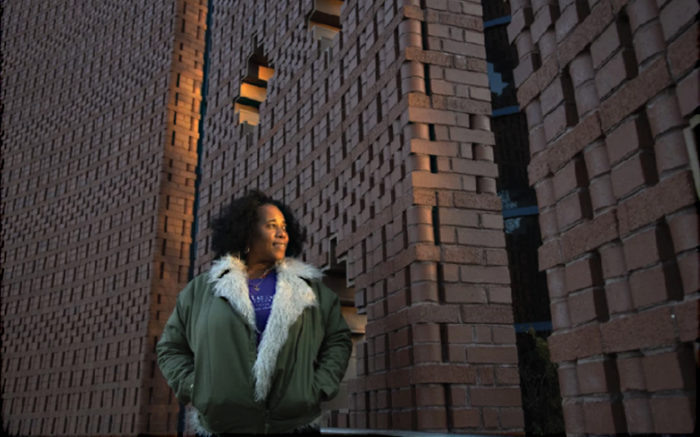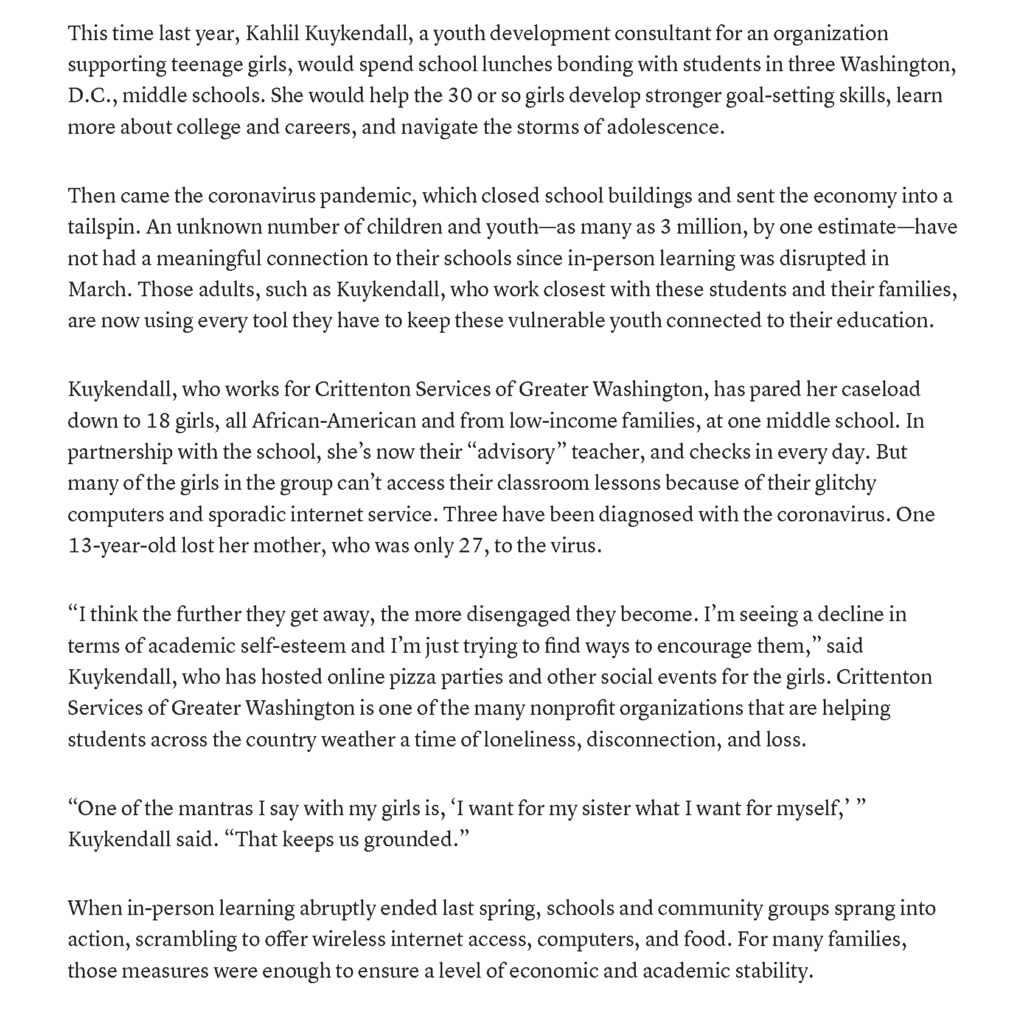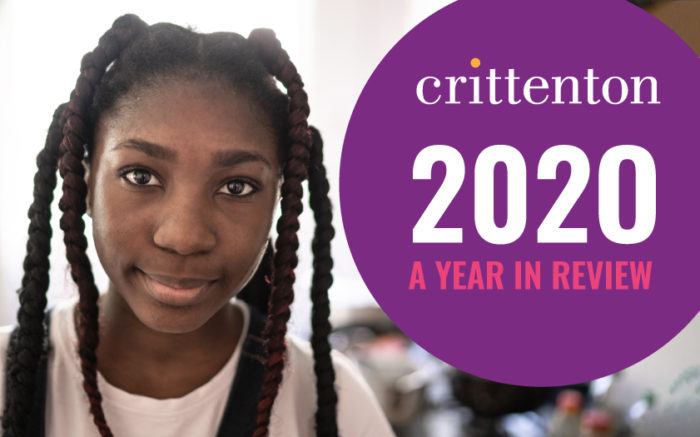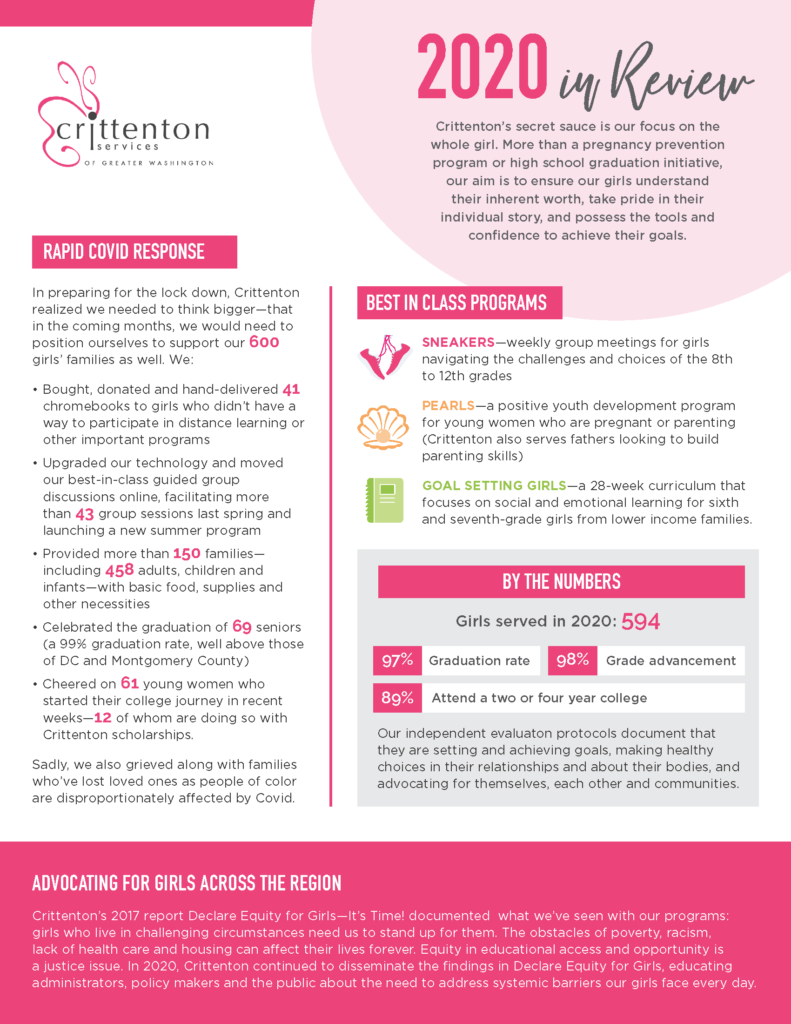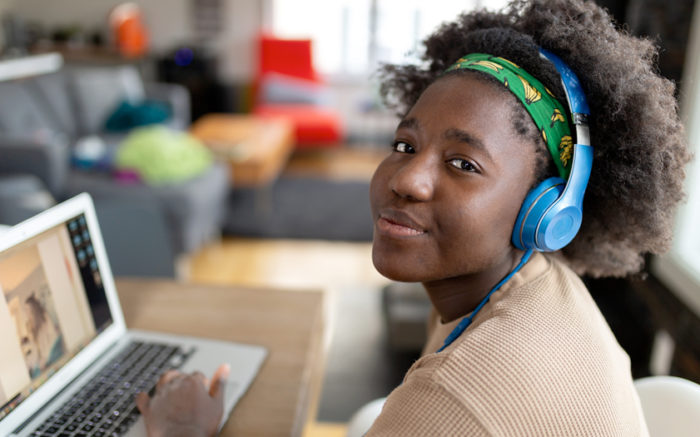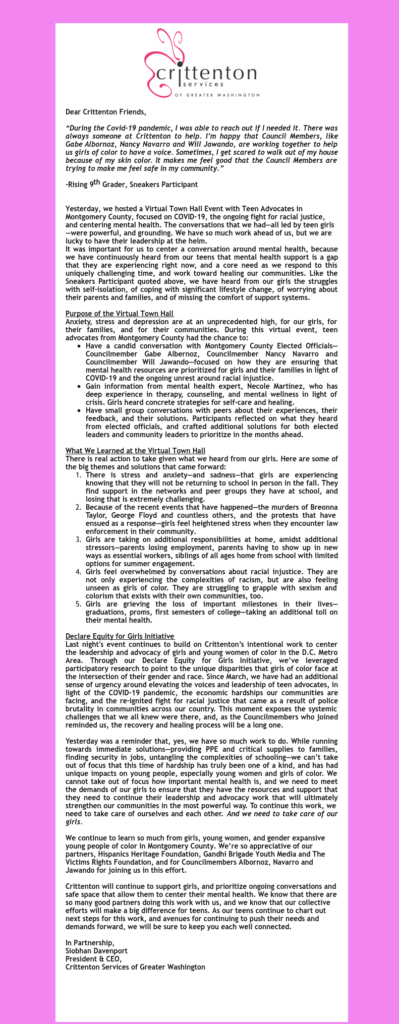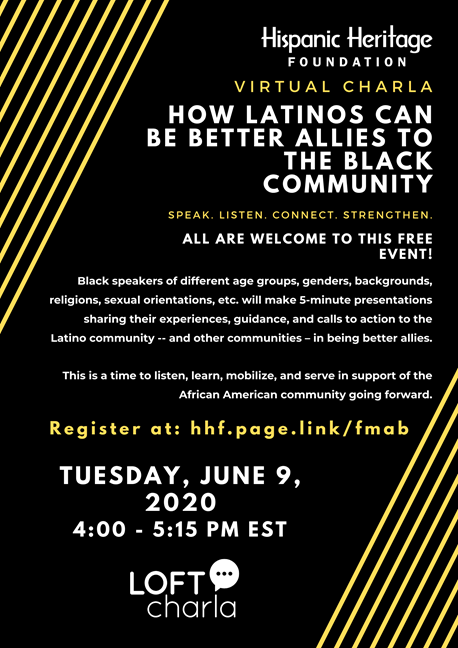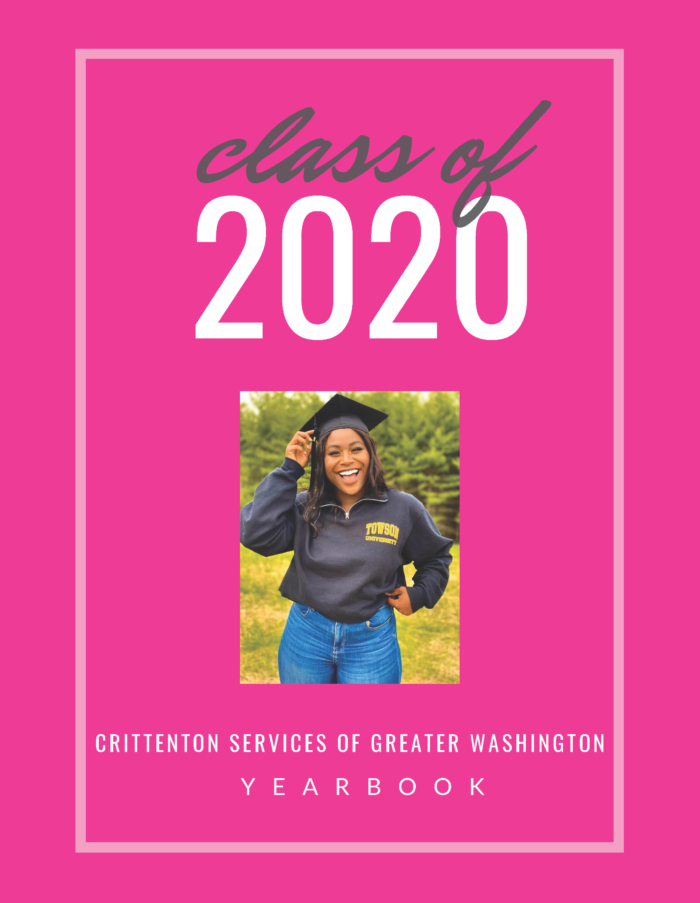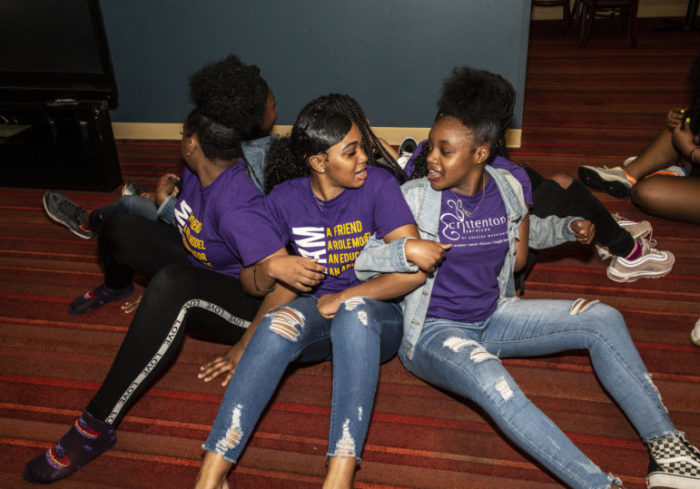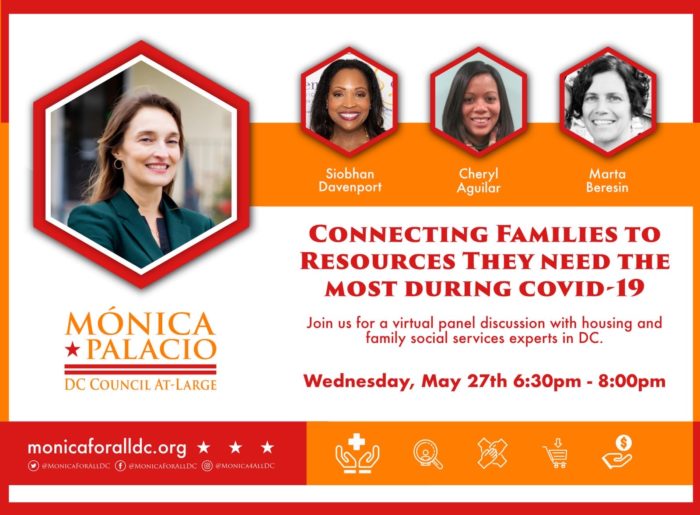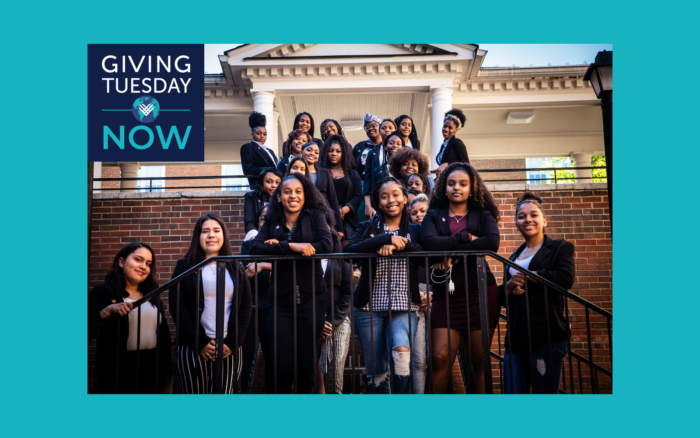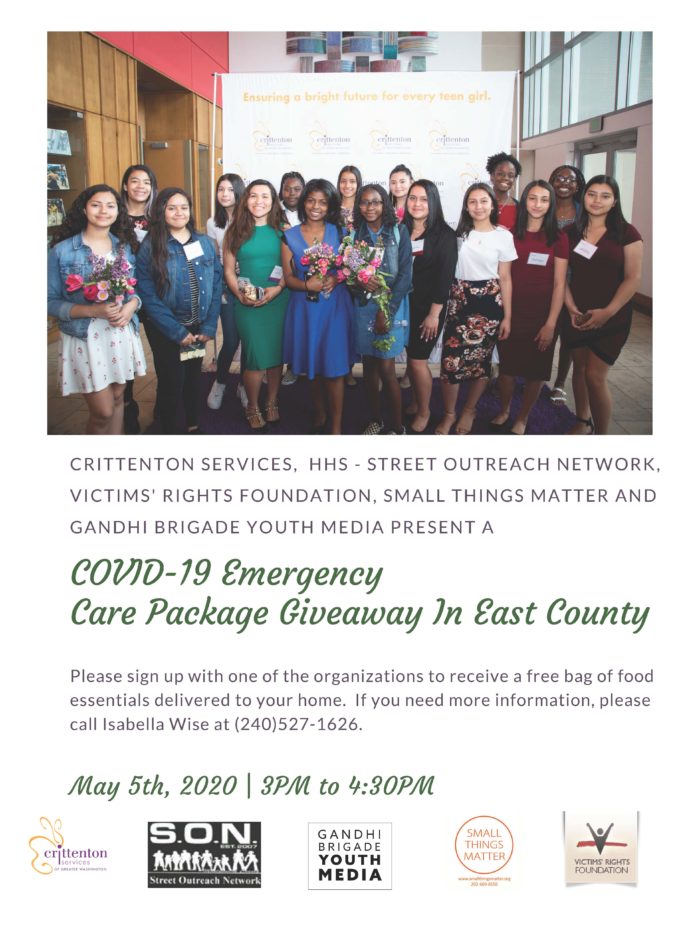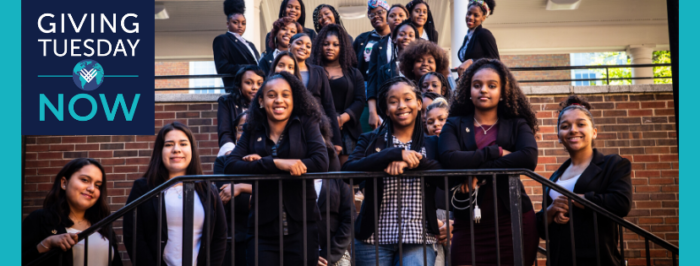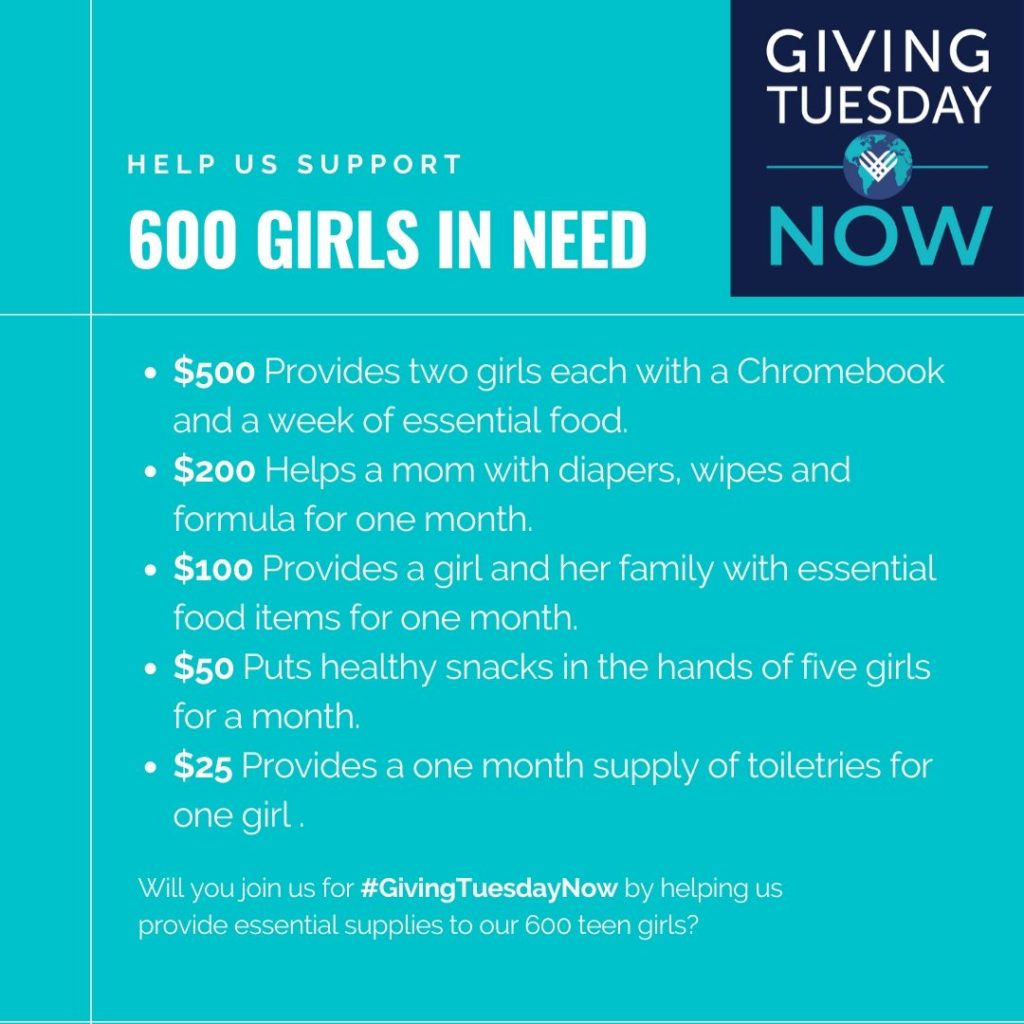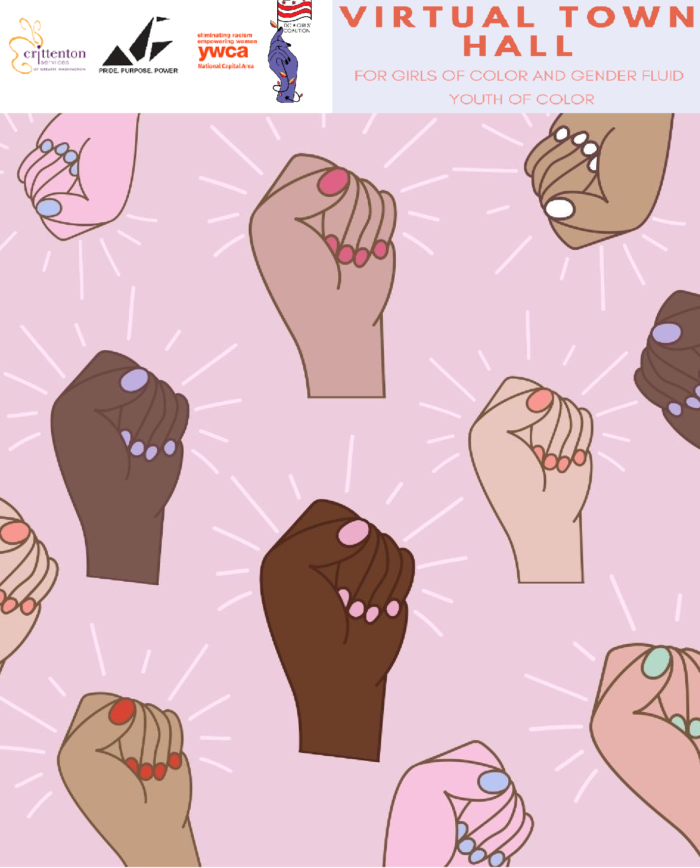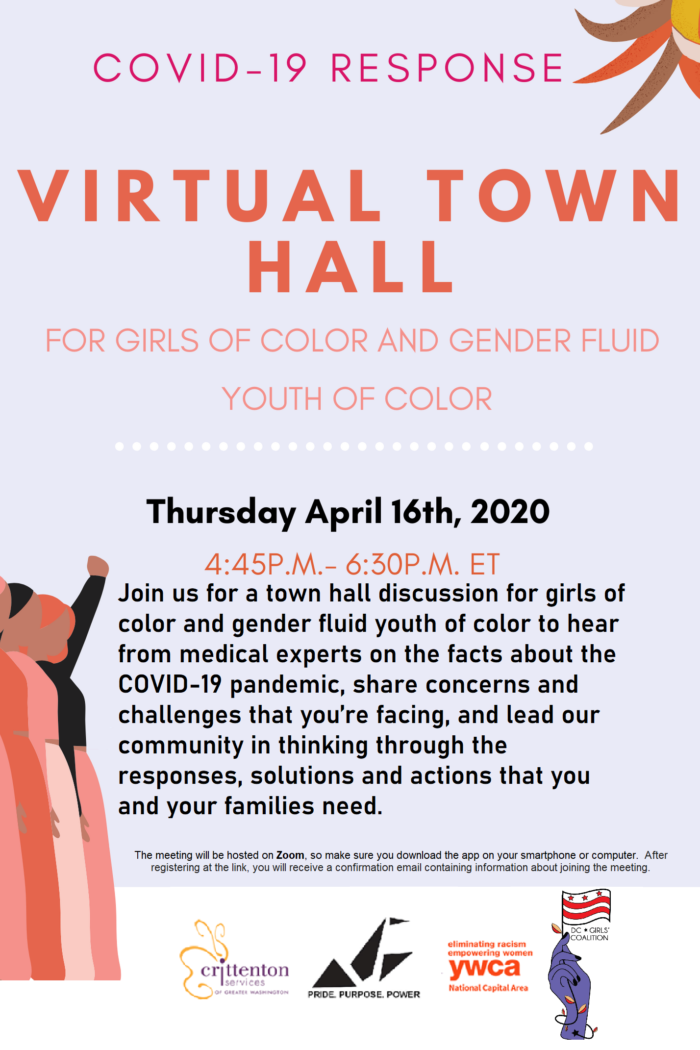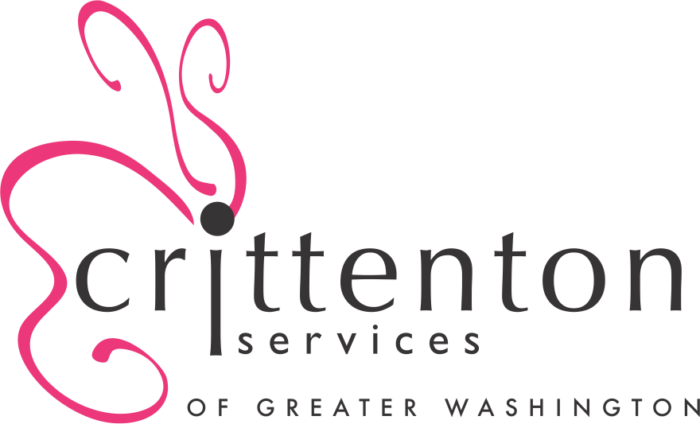By Siobhan Davenport
April 17, 2020
Undoubtedly, the COVID-19 crisis has shaken us all up. The very fabric of life as we know it has been transformed into a new, less favorable normal. As the dynamics of our country have changed with lockdown and stay-at-home orders, so too have the dynamics of home life. Parents are working from home, furloughed, or newly unemployed. With school closures, children—from daycare to college-aged—are home too. Families are juggling the tall task of finding a new balance, with limited resources, and heightened anxieties.
What is also clear, is that individuals across the country are feeling the consequences of these changes to varying extents, and in varying ways—and oftentimes those experiences are closely intertwined with the intersections of their gender, race, and socioeconomic status. This begs the careful consideration of how the changing home dynamics brought on by the COVID-19 pandemic are specifically and disproportionately impacting girls of color—and particularly girls of color from low-income communities. For one, it is having a huge impact on how girls of color are being asked to show up as everyday caregivers to keep their homes afloat.
Black and Brown girls are and have always been natural leaders in their schools, their families, and their communities. While continuously at odds with the structural and systemic barriers put forth by the many traces of racism and patriarchy in the U.S. system, they are innovative, ambitious, and solutions oriented. Because of their lived experiences, they are often wise beyond their years. We can all learn something in trusting their leadership.
But Black and Brown girls are also—too, often—the first to feel the brunt of the crisis in a way that, if not called out, can go unseen. In the world of COVID-19, girls of color are being asked to show up in new ways, with new responsibilities. Girls who still have to show up as students, in the new virtual classrooms that they may or may not have good access to. Girls who, though perhaps not or never employed themselves, are now at home balancing school and labor.
We’ve heard from so many of our girls—as young as 12 and 13—the new roles that they’re juggling while at home under lockdown. They have become the dominant care-provider for younger children in their homes, helping siblings adjust to home-school-style learning, aiding in the morning and nighttime routines, and assisting with homework help. They are supervising playtimes, changing diapers, mixing bottles, and putting babies down for naps. And they’ve been showing up for elderly grandparents, great aunts, and great uncles, too: supporting them in complex medication regimens, preparing their meals, aiding them in getting dressed and moving around.
And beyond just their homes, they are stepping up to support child care and elderly care efforts in their communities, for neighbors and community members who are essential workers, and must leave home during the crisis, with no other access to home care. Middle and high-school girls, unpaid, are working around the clock to support their families and communities.
While there is no clear solution to this dilemma, it’s important to understand the implications. It’s important for teachers and school leaders across the country to deeply understand that the circumstances of students across their virtual classrooms are not the same. Shifting education from classrooms to living rooms is not just a change in location—the COVID-19 crisis has changed the responsibilities and priorities of so many families, including young girls.While there are indeed homes across the U.S. where children can remain mostly-sheltered from the many impacts of this crisis—where a change in daily routine does not mean a change in duties or labor—that’s just not the reality for too many girls of color. So, let’s see girls for their leadership—when they rise to the occasion because they want to, or because they have. And let’s provide them with the additional support that they’ll need—mentorship, additional academic support, trauma-informed approaches to instruction, grace—to persevere through these times.
To learn more about Crittenton Service of Greater Washington and to support their work, please visit their website.
Siobhan Davenport is President and CEO of Crittenton Services of Greater Washington and has more than 16 years of experience working with youth that face structural barriers. With her leadership, CSGW launched its Declare Equity Initiative, focused on the inequities that girls of color face in schools through D.C. Metropolitan Area.
